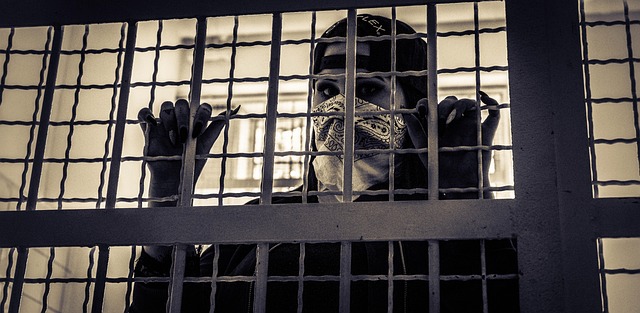Youth DUI Prevention Programs are vital in addressing teen drinking and driving, a leading cause of death. These programs educate teenagers about alcohol's risks through interactive sessions, peer support, and community engagement, empowering them to make safer choices and minimize repeat offenses. Specialized interventions for at-risk teens include counseling, group therapy, and mentorship, while a supportive network facilitates successful rehabilitation and reintegration into society.
Teen rehabilitation faces unique challenges, with Youth DUI (drunk driving under age 21) statistics highlighting a pressing issue. This article explores strategies to get young people back on track. We delve into the impact of understanding youth DUI trends, emphasizing the critical role of education in preventing teen drinking. Effective intervention methods for at-risk teens are discussed, along with building supportive systems for successful rehabilitation. Key focus areas include Youth DUI Prevention Programs, offering a roadmap towards positive change.
- Understanding Youth DUI Statistics and Their Impact
- The Role of Education in Preventing Teen Drinking
- Effective Intervention Strategies for At-Risk Teens
- Building Support Systems for Successful Rehabilitation
Understanding Youth DUI Statistics and Their Impact

DUI (Driving Under the Influence) among teenagers is a significant concern, with alarming statistics highlighting its prevalence and severe consequences. According to recent studies, Youth DUI Prevention Programs are essential in addressing this growing issue. The numbers reveal that alcohol-impaired driving is a leading cause of death for teens, often resulting from impulsive decisions and peer pressure. These programs aim to educate young individuals about the risks and responsible drinking to prevent such tragic incidents.
The impact of Youth DUI Prevention Programs extends beyond individual lives; it has far-reaching effects on families and communities. By providing resources and support, these initiatives empower teenagers to make safer choices, reduce repeat offenses, and promote a culture of accountability. Through interactive workshops, peer mentoring, and community outreach, young people gain valuable insights into responsible behavior, ultimately contributing to a safer and healthier environment for everyone on the roads.
The Role of Education in Preventing Teen Drinking

Education plays a pivotal role in preventing teen drinking, which is often a precursor to Youth DUI (drunk driving under age 21) offenses. Comprehensive educational programs can help young people understand the risks and consequences associated with alcohol consumption. By integrating topics like responsible decision-making, peer pressure resistance, and understanding the legal implications of underage drinking into school curricula, we can empower teens to make healthier choices. These initiatives should also focus on promoting alternative activities and hobbies that foster social connections and personal growth, thereby reducing the appeal of risky behaviors.
Youth DUI Prevention Programs can take various forms, such as interactive workshops, guest lectures from law enforcement or rehabilitation professionals, and peer support groups. Equipping teenagers with knowledge about alcohol’s impact on development, legal penalties, and long-term health effects enables them to make more informed choices. Moreover, education provides a platform for open dialogue, allowing teens to ask questions, dispel myths, and gain insights into the experiences of their peers, further reinforcing positive behaviors.
Effective Intervention Strategies for At-Risk Teens

At-risk teens, especially those facing issues like substance abuse or delinquent behavior, require tailored intervention strategies for successful rehabilitation. Early identification and prompt action are key; youth DUI prevention programs have proven effective in targeting these problems before they escalate. Such programs offer comprehensive support networks, combining counseling sessions with educational workshops to equip teens with coping mechanisms and life skills.
Intervention strategies should be holistic, addressing not just the immediate issue but also underlying factors like family dynamics, peer influence, and mental health. Group therapy sessions facilitate peer support and accountability while individual counseling provides personalized guidance. Incorporating recreational activities and mentorship programs can further enhance engagement, offering teens positive alternatives and fostering a supportive environment conducive to their development and back-on-track journey.
Building Support Systems for Successful Rehabilitation

Rehabilitating teenagers after an incident involving a Youth DUI Prevention Program requires a robust support system. This includes not just the formal interventions offered by rehabilitation centers, but also a network of family, friends, and community members who can provide encouragement, accountability, and guidance. Such support systems play a pivotal role in ensuring that the teenager stays on track during their recovery journey.
By fostering open communication, setting clear expectations, and promoting healthy coping mechanisms within this network, it becomes possible for teenagers to gradually reintegrate into society while maintaining their sobriety. This holistic approach not only enhances the chances of successful rehabilitation but also prepares them to face future challenges head-on, reducing the risk of relapse.
Teen rehabilitation programs focused on reversing harmful behaviors, such as Youth DUI Prevention Programs, play a crucial role in shaping a safer future. By combining education, intervention, and robust support systems, we can empower teens to make healthier choices. Investing in these programs is not just about reducing incidents of underage drinking and driving; it’s about fostering resilience, promoting well-being, and ensuring our youth have the tools to navigate life’s challenges responsibly.






